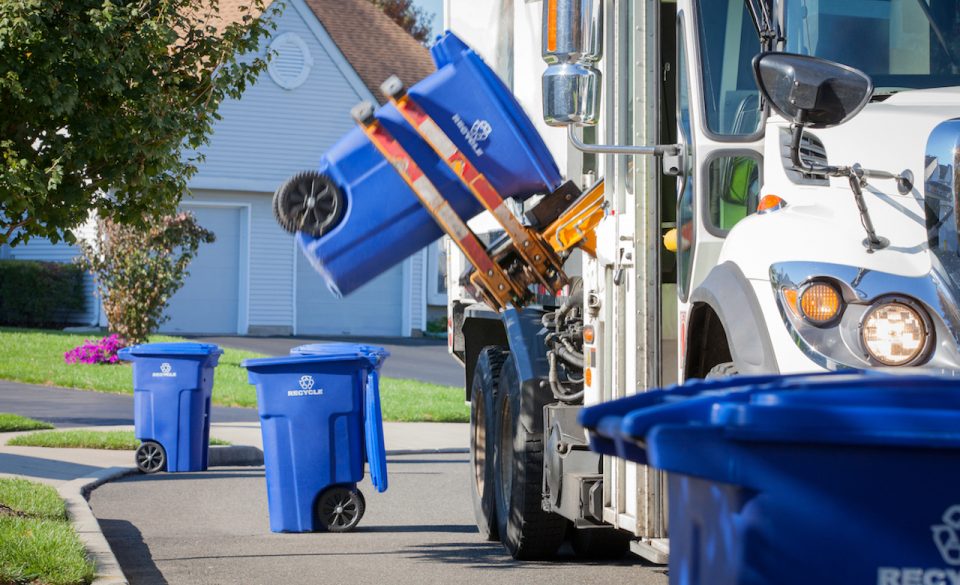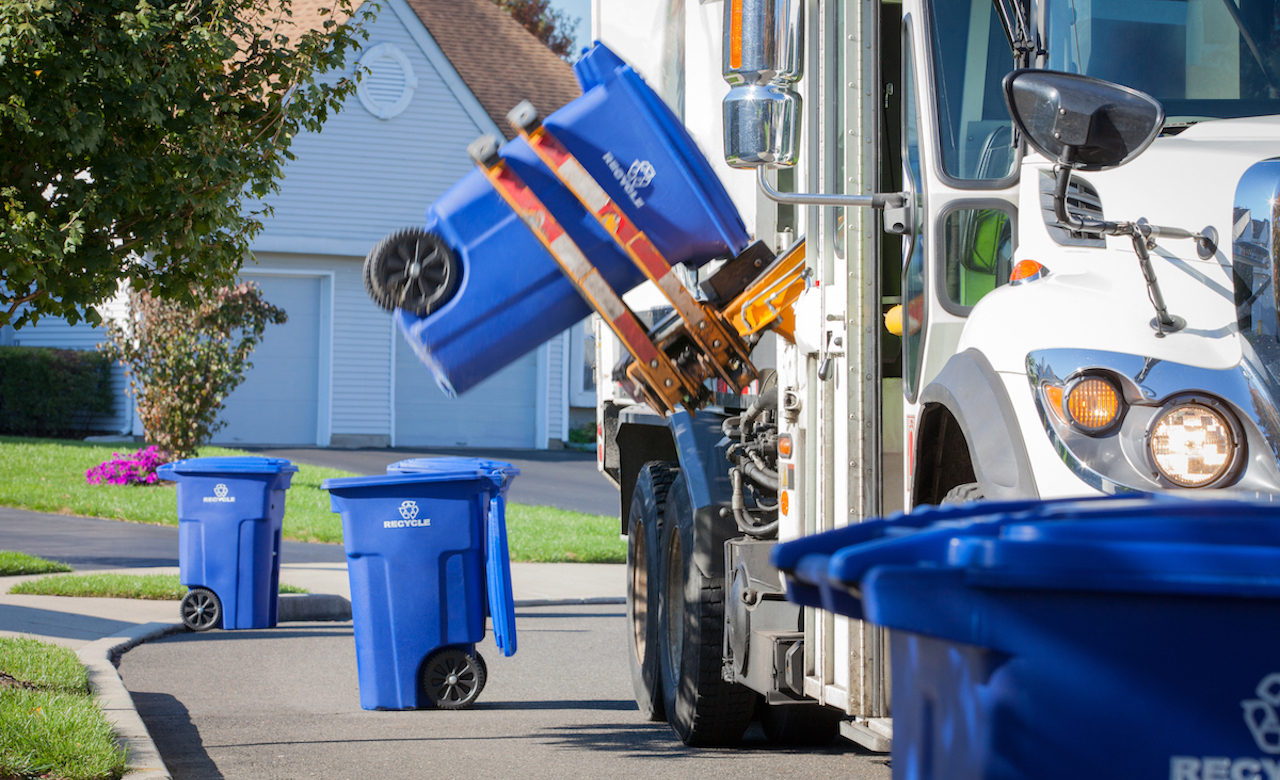
Spring is considered a time of renewal — and Michigan recycling experts say that also goes for much of the unwanted stuff lying around the house.
“As the weather turns nicer and Michiganders are starting spring cleaning projects, we hope they’ll consider whether an item can be recycled or reused before they simply toss it in the trash,” said Tracy Purrenhage, recycling specialist for the Michigan Department of Environment, Great Lakes, and Energy (EGLE). “To kind of turn a phrase, ‘What’s old can often become new again.’”
That sentiment is echoed by other recycling leaders throughout the state who are gearing up for an influx of materials at their sorting facilities.
“Spring cleaning is a big event each year, so we always see an uptick in recycling and a variety of different items,” said Katelyn Kikstra, resource recovery specialist for the Kent County Department of Public Works, whose Recycling & Education Center serves as the primary materials recovery facility for recyclables generated by West Michigan households.
At the same time, some of what spring cleaners place in their recycling bins doesn’t belong there — at least in its current condition. For example, containers that would be recyclable if empty are dangerous if they still contain chemicals such as bleach or drain cleaner that can mix and cause fires at recycling facilities, Kikstra said.
Other dangers for recycling center workers include batteries, aerosol cans and sharp metal objects.
Purrenhage said those are reasons why it’s so important to follow the rules that EGLE is promoting in its statewide “Know It Before You Throw It” recycling education campaign, which aims to increase both the quality and quantity of recycling in Michigan.
“One thing we stress is that you should always rinse and empty all containers before placing them in your recycling bin,” she said. “We also urge people to check with their local recycling service to learn exactly what materials they accept.”
When it comes to spring cleaning, that last bit of advice could apply to any number of items. Here’s some guidance on how to handle materials that are commonly encountered while decluttering during the spring.
Pieces of metal, such as old grills, rusty lawn mower blades or pots and pans
“Scrap metal is generally not accepted curbside, but some drop-off recycling centers will take it,” said SOCRRA General Manager Jeff McKeen, who oversees recycling services in 12 Oakland County communities. You also might get some cash for it if you find a scrapyard to take it, Purrenhage said.
Hazardous material containers (cleaners, fertilizers, paints, etc.)
Many counties and local governments host local collection events every spring and fall where residents can dispose of household hazardous waste. EGLE has a webpage devoted to hazardous waste, including a list of statewide collection sites. “It’s possible that some containers that once held cleaners or other household hazardous materials may be recyclable curbside, as long as they are clean and empty — just be sure to check with your local program first and ‘know it before your throw it,’” Purrenhage said.
Batteries
All batteries are recyclable, but they should never go in curbside bins because they can spark fires at recycling facilities. Depending on the type, you might find hazardous waste collection sites, auto parts stores or home improvement retailers such as Lowe’s and Home Depot to accept them. More information on battery recycling is available here.
Hoses, boat shrink wrap and other types of flexible plastics
Recycling facilities don’t want these materials because they can get tangled in their machinery, but they’re ripe for reuse, Kikstra said. “We try to encourage people to get one more use out of these items by repurposing them if possible,” she said. “Poking holes in a hose can turn it into a garden soaker, or use the shrink wrap as a painting drop cloth.” In addition, the Michigan Recycling Coalition and EGLE have partnered on a boat film plastic recycling program.
Plastic flowerpots and plant containers
Some recycling services will accept these materials curbside, provided they’re not full of dirt, McKeen said. You could also possibly reuse them or see if the retailer where you bought them will take them back. Home Depot stores and Meijer Garden Centers also collect them for recycling in partnership with East Jordan Plastics.
Plastic lawn chairs
“You can always donate these if they’re in good condition, and they can sometimes be recycled at drop-off locations,” Purrenhage said.
E-waste, such as old computers or TVs
Look for local drop-off centers or one-day collection events. Some electronics retailers will also take e-waste turned in by consumers. In addition, some manufacturers provide a takeback option for electronics like televisions and computers.
Clothing
Clothing and textiles should not go in curbside recycling. However, local thrift shops can find new uses for most donated garments. “Clothing is another reuse opportunity where it can be turned into cleaning rags in place of paper towels,” said Kikstra.
Mattresses
There may be local drop-off centers or one-day collection events for mattress disposal, Purrenhage said. If you have curbside waste services, you may also check with your service provider or local municipality regarding options for bulky waste pickup.
Supplies from the first cookout of the year after your spring cleanup is finished: paper plates, plastic plates and cups, straws, plastic utensils
Most of this should go in the trash because of food contamination, which is why it’s best to choose reusable or compostable options, Kikstra said. Exceptions are clean aluminum foil and plastic cups, which are often recyclable curbside, although foam containers are rarely accepted, McKeen said.

